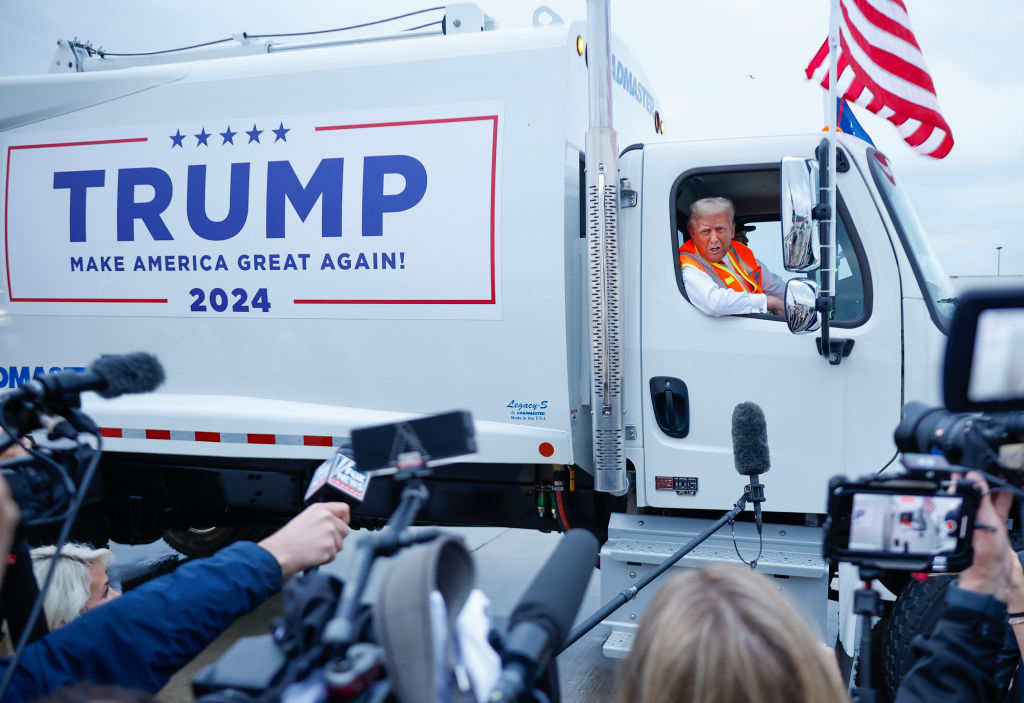
Do Trickle-Down Economics Have Value or Drawbacks?
According to their clearly stated political views up to now, both candidates will be tough on China and try to strengthen the economy; it is only that they are completely different and unyielding in their positions. This will affect the direction of U.S. economic policy, so-called trickle-down economics.
An American humorist invented the unusual term “trickle-down economics” during the Great Depression between 1929 and 1933. It refers to the benefits gained from greatly cutting taxes on the wealthy and corporations that would trickle down to poor people and help everyone. Half a century later, the term referred to President Ronald Reagan’s economic policies. Since Reagan is considered to be the most successful president of modern times, subsequent Republicans have adopted the same policies. Trump, who is determined to imitate Reagan, not only agrees with trickle-down economic policies, but began blindly implementing them iwhen he was in office.
President Reagan not only took down the Soviet Union and Japan, two major powers that threatened U.S. hegemony, but enacted well-performing economic programs. When Reagan first took office, the economy was heading into a recession by 1982 on par with the Great Depression. However, prosperity returned after several years and continued into the 1990s, making it the longest period of economic prosperity in U.S. history. His economic policies were radically transformative, changing the previously popular Keynesian economic approach and boldly introducing a new economic position: supply-side economics. This school of thought, which had recently emerged in the economic world, proposed that economic expansion should not rely on boosting effective demand but rather stimulate incentives for investment and production to increase continual productivity. Therefore, it sought to decrease corporate and individual taxes on the one hand and do away with obstructions and restrictions on production and investment on the other.
During his time in office, Reagan cut taxes twice and lowered the highest income tax rate from 70% to 28%. Corporations profited greatly from accelerated depreciation and favorable research and development policies. Although the wealthy were not specifically targeted by these policies, they and corporations benefited the most. Therefore, some people called Reaganomics trickle-down economics.
Since Trump is a disciple of Reagan, he also cut taxes significantly after he took office. Thus, trickle-down economics naturally came to be associated with him, something neither he nor his aides objected to. President Joe Biden has made this a policy target, and many economists have joined in the attack because they believe that favoring the wealthy will not benefit the poor but rather increase the government deficit, which is unacceptable.
Because trickle-down economics has become a focal point of debate between both parties, the election results will determine the direction of America’s economic policy. But which side is right? Looking at Reagan’s achievements, complying with supply-side economics certainly brought an economy on the verge of a depression into a long period of prosperity. Its great contributions should prove its effectiveness. When Trump used supply-side economics, however, the contributions were not nearly as great, which may be a sign of how ineffective this approach can be.
The difference between Reagan and Trump is that when Reagan took office, income tax was too burdensome and really had a negative impact. Many complicated restrictions also hindered investment and production. Therefore, Reagan took sweeping action to correct bad practices and achieved great results. When Trump took office, however, the tax rate was already low, and a reduction from 39.6% to 37% was insignificant. Furthermore, many of the restrictions had long been relaxed, and the degree of economic freedom was completely different, so results were not obvious. Still, fundamentally, minimizing interference in and exploitation of investment and production as much as possible enables the entire economy to proceed energetically and smoothly. This is an unassailable maxim.
The author is an economic reviewer.

